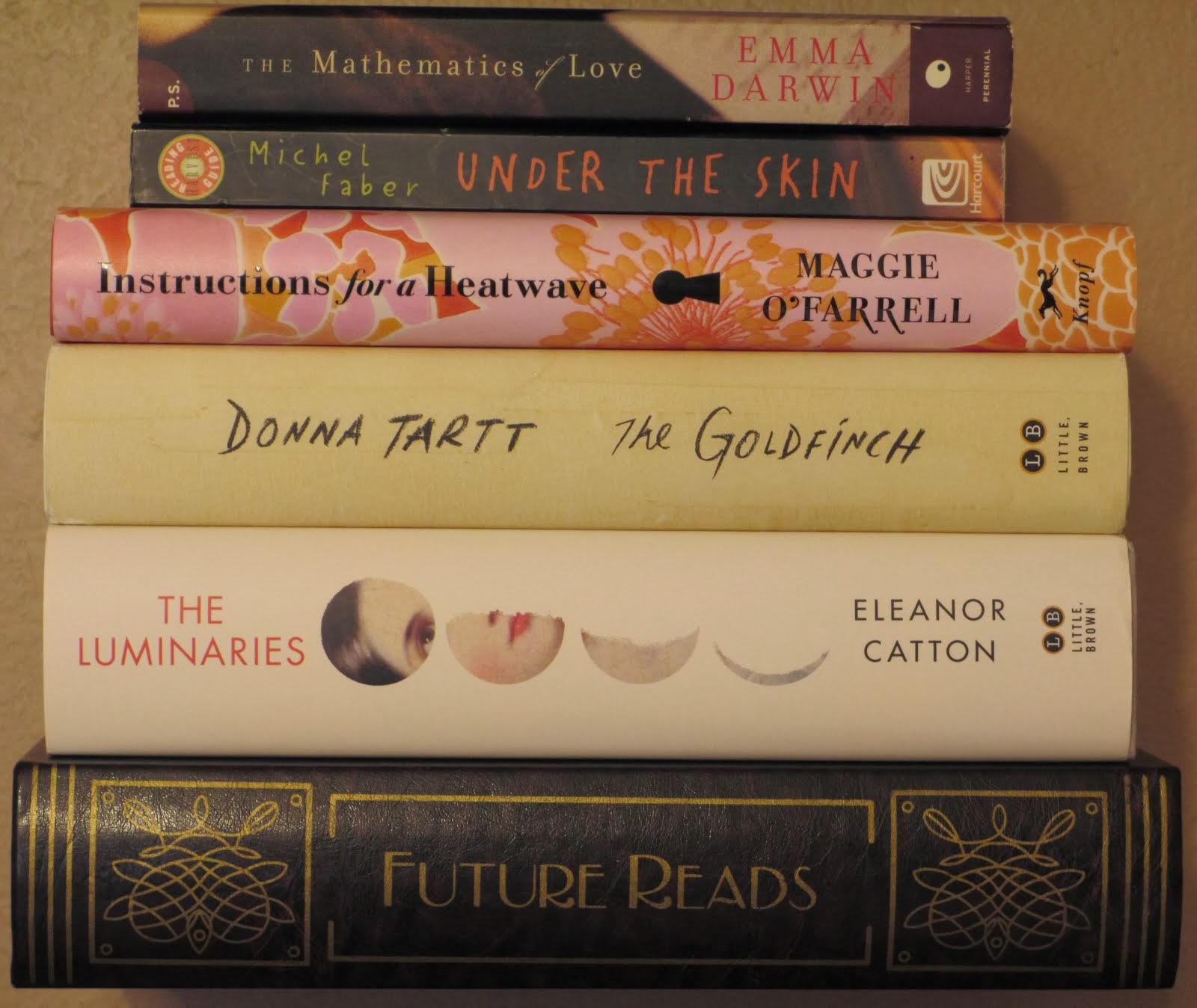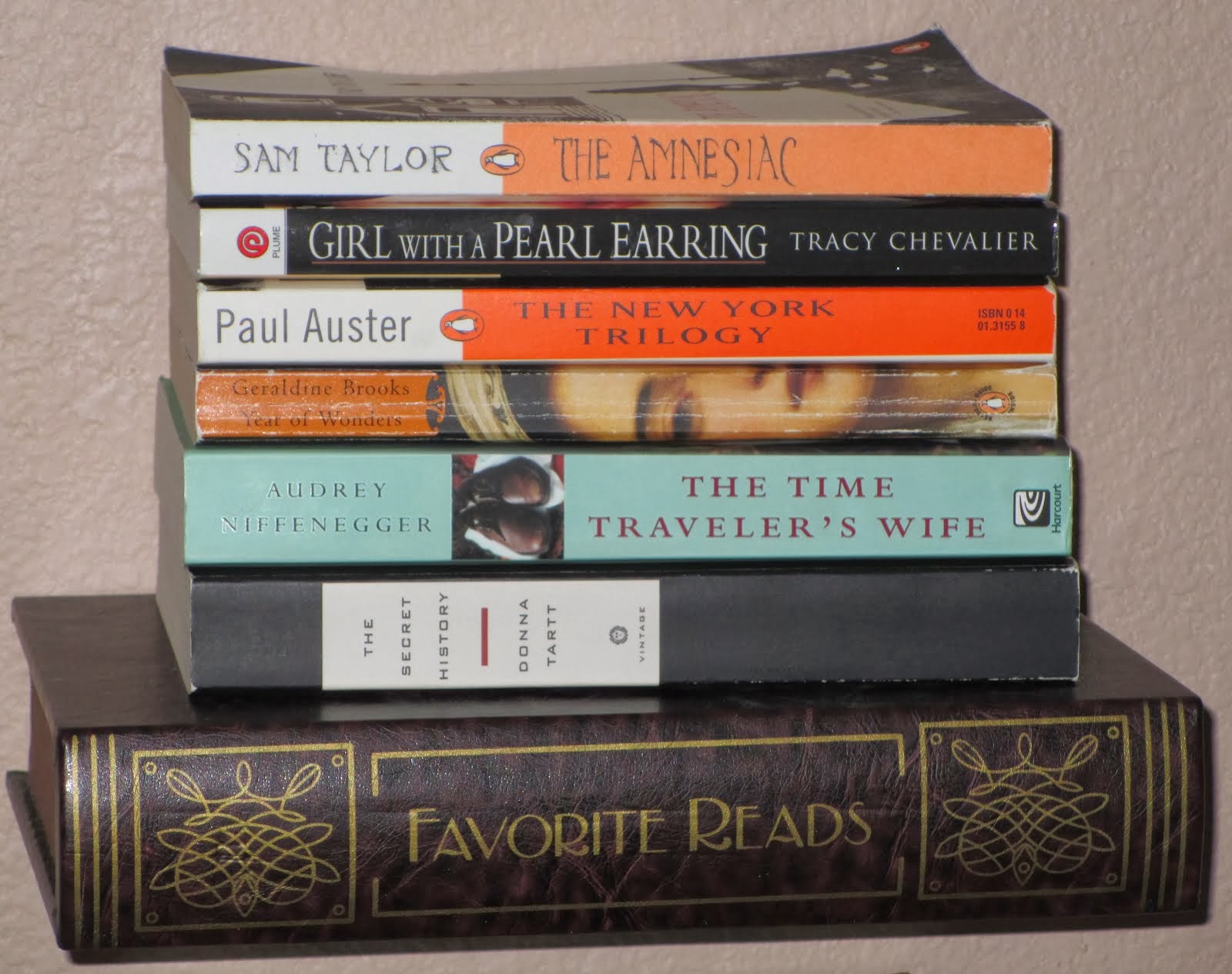What a great title for this month, and how fitting that I am posting about it on Halloween! I was selecting my next read based on the books I could see from my reclining position in bed. I briefly thought I might pick up Children of God by Mary Doria Russell, but when my eye fell on Haunted, I decided that sounded perfect for October. It's just too bad I don't have time to squeeze Christopher Moore's Bite Me into the month as well. Maybe next Halloween.
Anyway. Back to Haunted. Did you know the cover glows in the dark? I'm a sucker for gimmicks like that. And this time I was pleased to find that the cover wasn't the best part of the book.
Haunted is basically a novelized short story collection. There are 23 mostly-unrelated stories linked together by a writer's workshop. (And that summary of the book could be likened to describing Adolf Hitler as the leader of Germany during World War II. It's a true statement, but it leaves a LOT out.) So here are the details.
First, about the title itself. I was kind of expecting ghosts and supernatural phenomena. I was wrong. We're looking at a different type of "haunting"--the kind that comes with unsettling, could-be-true stories that imprint themselves on your mind and stick there forever. So, really, this book wasn't especially Halloweenie. But (despite my misinterpretation of it) the title certainly wasn't false advertising.
Second, the stories. They're definitely Palahniukian. All the way through, I was thinking what a disturbed (but inventive!) mind the author must have. This book is full of the sort of thing you come across on the internet and then wish you hadn't--like that gruesome, sordid, indecent news piece you might, in hopes of attenuating its effect on you, try to tell yourself was made up or exaggerated. And then I read the Afterword, where Palahniuk refers to these as "mostly true stories." Seriously?? That knowledge makes me less fearful of what he might come up with next (or what he might do) and more unsettled by the stories themselves.
Third, the matrix for the stories. I found it the only disappointing part of the book, as it was inferior to the stories themselves. The things that happened during the "writer's workshop" were too obviously present purely for shock value, seeming pointless and impossible to relate to. But it was interesting that this part was written in first person plural. I expected the narrator to eventually be revealed as a specific member of the workshop and was somewhat disappointed that that never happened.
The Darkest Corners – Kara Thomas
1 day ago
















